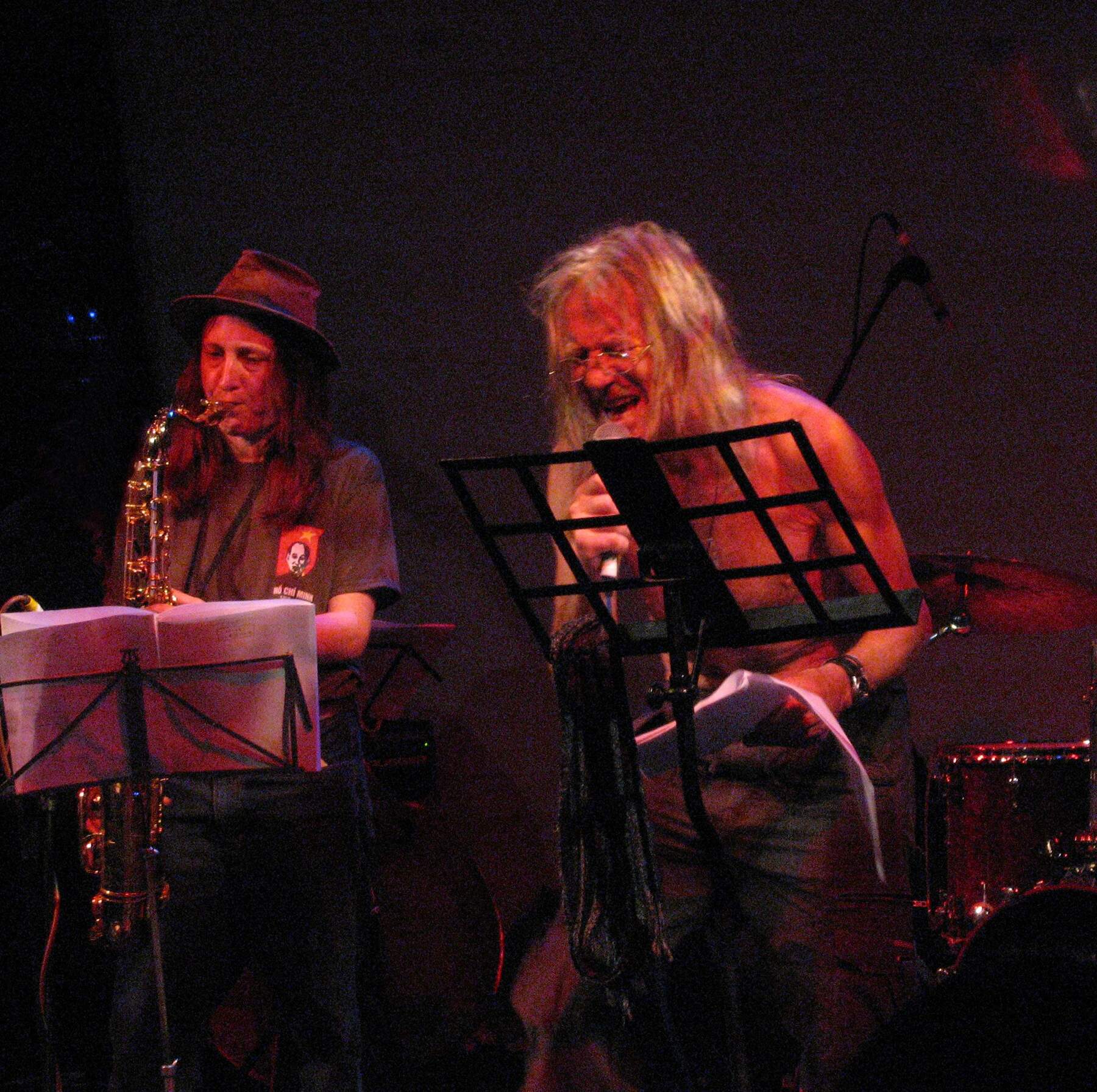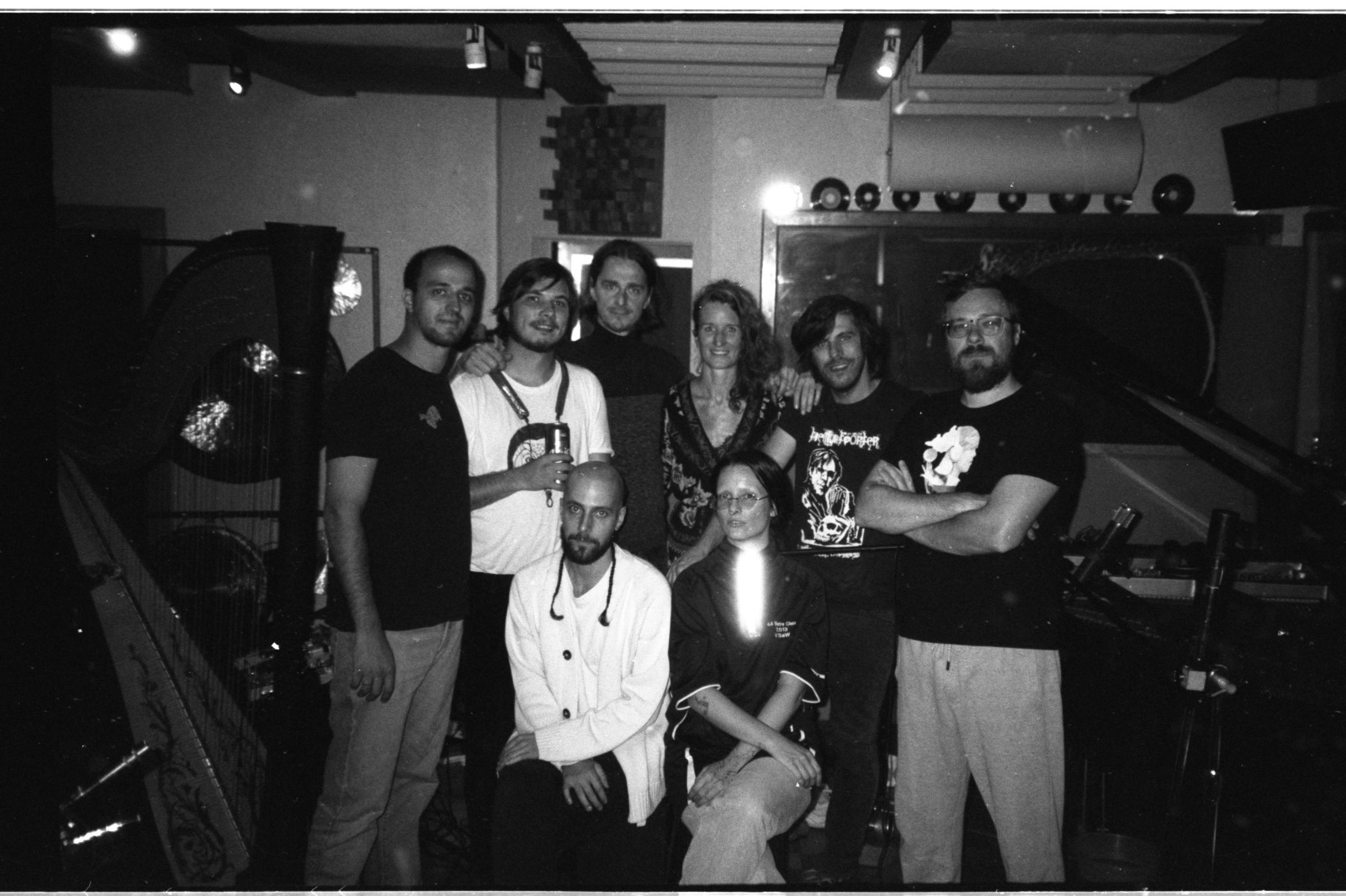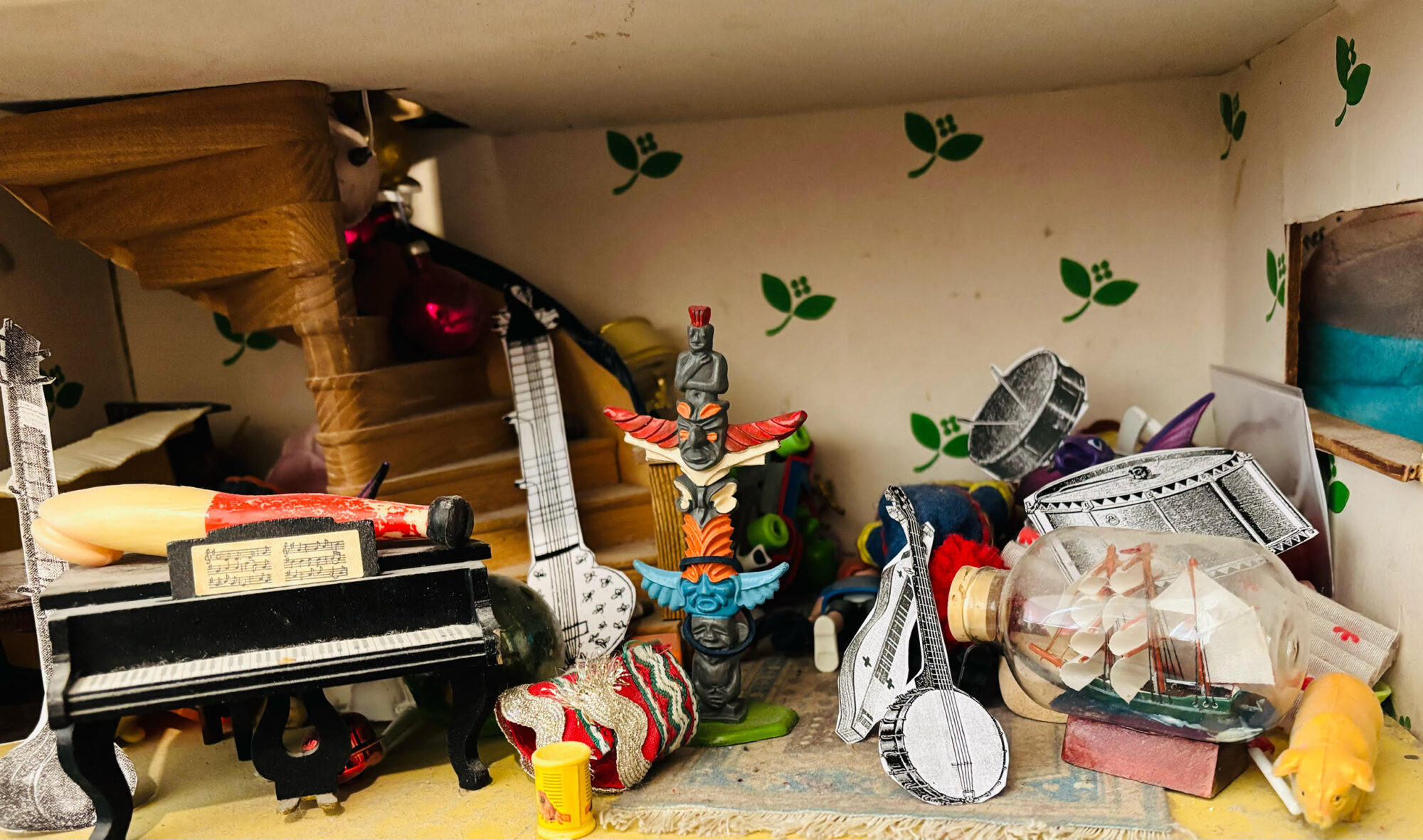Penny Rimbaud and Louise Elliott on Intuition, Time and the Making of ‘Touch Is Hold’
In the summer of 2012, Penny Rimbaud and Louise Elliott entered the studio with a shared instinct that music, when made with trust, could reach beyond the ordinary passage of time.
The result, ‘Touch Is Hold,’ sat quietly for more than a decade before its release in 2025. In that long interval the world turned through its usual cycles of conflict and disillusionment, yet the work retained an unshaken relevance. Rimbaud himself reflects on this with characteristic directness: “What’s changed? Wars continue, politics fluster, and all the while love too easily loses its lustre.”
The album is built around the meeting of Rimbaud’s voice and Elliott’s woodwinds, a pairing that creates an atmosphere at once intimate and expansive. Elliott treats the poem as her score, letting each phrase shape her lines while also allowing her music to move free of the text when the moment calls for it. Rimbaud calls it “the poetry of jazz and the jazz of poetry,” though the essence is less about form than about a sustained act of listening.
Rimbaud’s history as co-founder of Crass is well documented, yet here he inhabits a different register. The confrontational energy remains, but it is filtered through reflection, patience and a kind of spaciousness rarely found in his earlier work. Elliott’s career is equally rich, from cult rock ensembles in Australia to collaborations with African and South American musicians in London. Her playing holds the weight of these experiences without leaning on them for effect.
Together they produce a work that does not seek to instruct but to hold a space. ‘Touch Is Hold’ is not a revival of an archived session, nor is it a relic from another era. It is an encounter preserved and now offered intact, carrying forward the exact charge it held in the room where it was made.
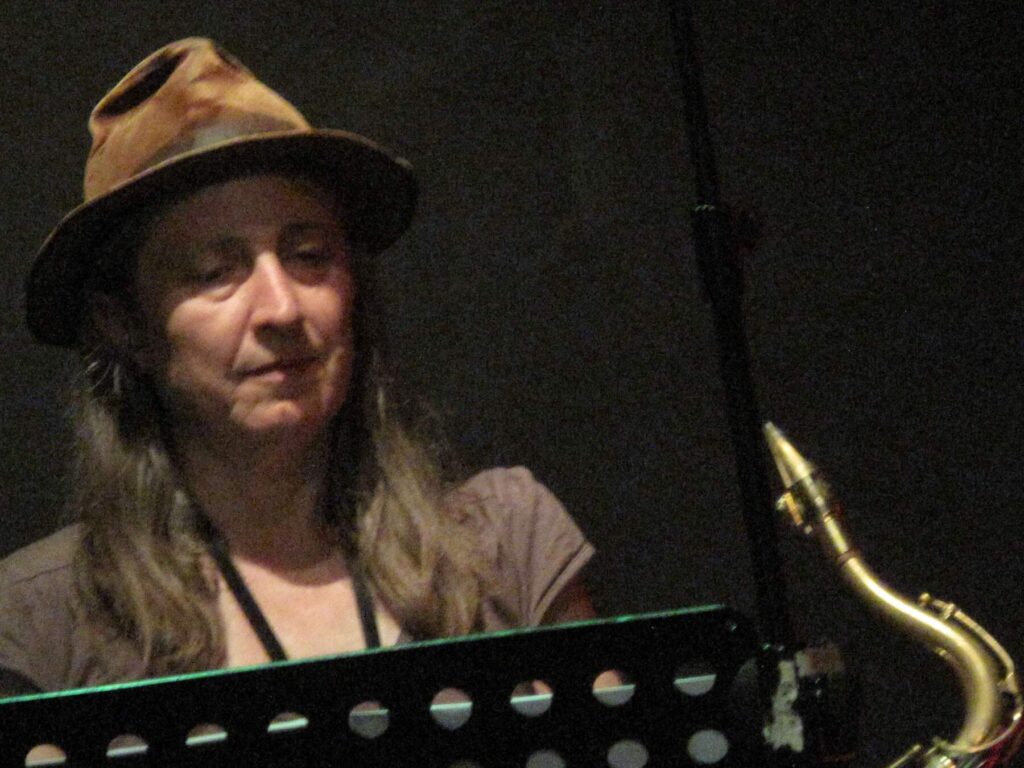
“The improvisation is both a lament and a response to the horrible crimes that are being committed.”
‘Touch Is Hold’ was recorded in 2012 but is only now seeing its release in 2025. Penny Rimbaud has remarked on its “deeply prescient nature,” asking, “What’s changed? Wars continue, politics fluster, and all the while love too easily loses its lustre.” From your perspective, how has this twelve-year temporal gap shaped the album’s impact, and what new layers of meaning or urgency do you believe it carries in today’s world?
Louise Elliot: So much has happened to us all since this album was recorded. The album feels new to me, at once timeless and current.
Your collaborative dynamic with Penny Rimbaud is described as profoundly intuitive, built on trust and an ethos of “simply doing it,” rather than extensive rehearsal or analysis. Could you elaborate on how this unique approach has evolved over your two decades as his “full-time accompanist,” and what it means to achieve such a “richly intuitive relationship” in a creative partnership?
Musicians and artists grow to understand each other the more we play and work together. For me the poem is the starting point. I play my instrument with the words of the poem in front of me, like a musical score. Penny has encouraged me to think of my instrument as another voice “equal” to his, so the recording is very much a duet. In rehearsal we will go over the poem. Sometimes Penny has a strong feeling for the mood he would like in a particular section, or where there could be an instrumental solo. But it is very open and develops through performance. Each performance will be different.
Your musical background is remarkably diverse, spanning cult rock with bands like Laughing Clowns and The Saints, to extensive work with African and South American musicians, and your own “African-inspired jazz explosion” with The Jazzhearts. How does ‘Touch Is Hold’ synthesize or perhaps challenge the broader narrative of your extensive musical explorations and stylistic evolution?
I have been very fortunate to work with many amazing musicians, from many different backgrounds and traditions. Although I have played with other poets, Penny has a particularly deep understanding of both the poetry and the music. In this album, because there is no rhythm section, the space is wide open for the voice and the music to interact.
Penny Rimbaud’s poetry is central to this album. As an instrumentalist, how do you approach the interplay between your saxophone and flute lines and his spoken word? Is it about creating a sonic bed, engaging in a direct dialogue, or something more abstract, allowing your instruments to become an extension of the lyrical narrative?
This album is a duet. Sometimes I am supporting the voice, sometimes in direct dialogue, and sometimes the music takes off on its own from the place that the poem has brought us.
The single ‘Not They’ was released in 2011, predating the main album recording in 2012. Could you delve into the creative process behind this particular track? Was it a foundational piece that evolved, or was it re-contextualized for ‘Touch Is Hold,’ and how did its musical and poetic elements converge to form its distinct identity?
This is a poem Penny had written some time earlier. I created a kind of melodic theme, in a particular mode, which is the seed of the improvisation. The improvisation is both a lament and a response to the horrible crimes that are being committed.
The album features the late Lol Coxhill on ‘Sax Duet,’ a track recorded back in 2003. What was it like revisiting this earlier collaboration, and how do you feel Coxhill’s distinctive, experimental voice on the saxophone contributes to the overall texture and emotional depth of ‘Touch Is Hold’?
This track is also a duet, two very distinct voices which contrast with each other and interact. After the intensity of the words and the human voice, this track takes us to another space before the final track, ‘Us Boys.’
How do you cultivate this ability to infuse the instrument with such profound emotional complexity? What is your relationship with the flute as an expressive tool, particularly in experimental or politically charged contexts, and how do you harness its unique timbre to convey both beauty and underlying tension?
At some point, I realised that many of the sounds that as a classical flautist I was trained not to do could actually be really interesting sounds and techniques. I was also inspired by Roland Kirk, the jazz musician who I first heard mixing his voice in with the flute. So you get all these other timbres to add to the “beautiful” sound of the flute, and it becomes an even more expressive instrument.
The album’s production journey is quite distinct: recorded by Harvey Birrell at Southern Studios in 2012, known for its analog sound, and then mastered by Alex Gordon at Abbey Road Studios in 2023, an institution synonymous with sonic excellence. How did these contrasting production and post-production choices contribute to shaping the final sonic landscape, ensuring the improvisational energy was preserved?
I do not know how they did it, but it sounds great, and the energy has been captured really well.
Improvisation seems to be a cornerstone of your philosophy, and you have spoken about improving your “listening skills and ability to react to other musicians.” How has your understanding and application of improvisation evolved throughout your career, and what personal or philosophical significance does this spontaneous creation hold for you as a musician?
Improvising is an essential element in many types of music such as jazz and Indian classical music. There are many different approaches, and I have learnt more of these through the different musicians I have played with. It is the spontaneous creation of something in the moment. It draws on what you have learnt and what is happening right now. Unless it is captured in a recording, it is gone forever. For me, improvising is a big part of being musically alive.
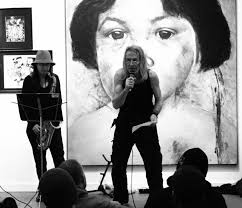
Your collaboration with Penny Rimbaud, a figure synonymous with punk’s intellectual and anarchist fringes, alongside your deep roots in jazz and diverse global music, creates a fascinating cross-pollination of ideas. What ideological insights have you gained from this collaboration?
Punk is now often mischaracterised as just safety pins, a mohawk, and a bad attitude. What gets forgotten is the creativity and the freedom to explore ideas and other ways to live your life.
Given Penny Rimbaud’s lifelong engagement with societal issues and his assertion that “Everything we write is a love song,” even when anti-war, does ‘Touch Is Hold’ carry a specific message or serve a particular purpose beyond its artistic merit? How do you, as an artist, navigate the intersection of creative expression and social commentary within this collaborative context?
The music has to speak for itself here.
With ‘Touch Is Hold’ finally released after such a significant period, what does this moment signify for you personally? Are there plans to bring this material to a live audience, and what new creative horizons might you and Penny be pursuing?
It was very moving to hear this album, and I am really pleased that it has now been released. At the moment there are no plans to perform this material live. I hope to do another project with Penny soon.
Looking back at the unique journey of ‘Touch Is Hold,’ from its recording in 2012 to its release now, what unexpected discoveries or realizations have you had about the music, the collaboration, or even yourself, through this extraordinary process?
That the album is very special to me as it captures a moment when Penny and I had spent a lot of time together and developed a strong artistic connection.
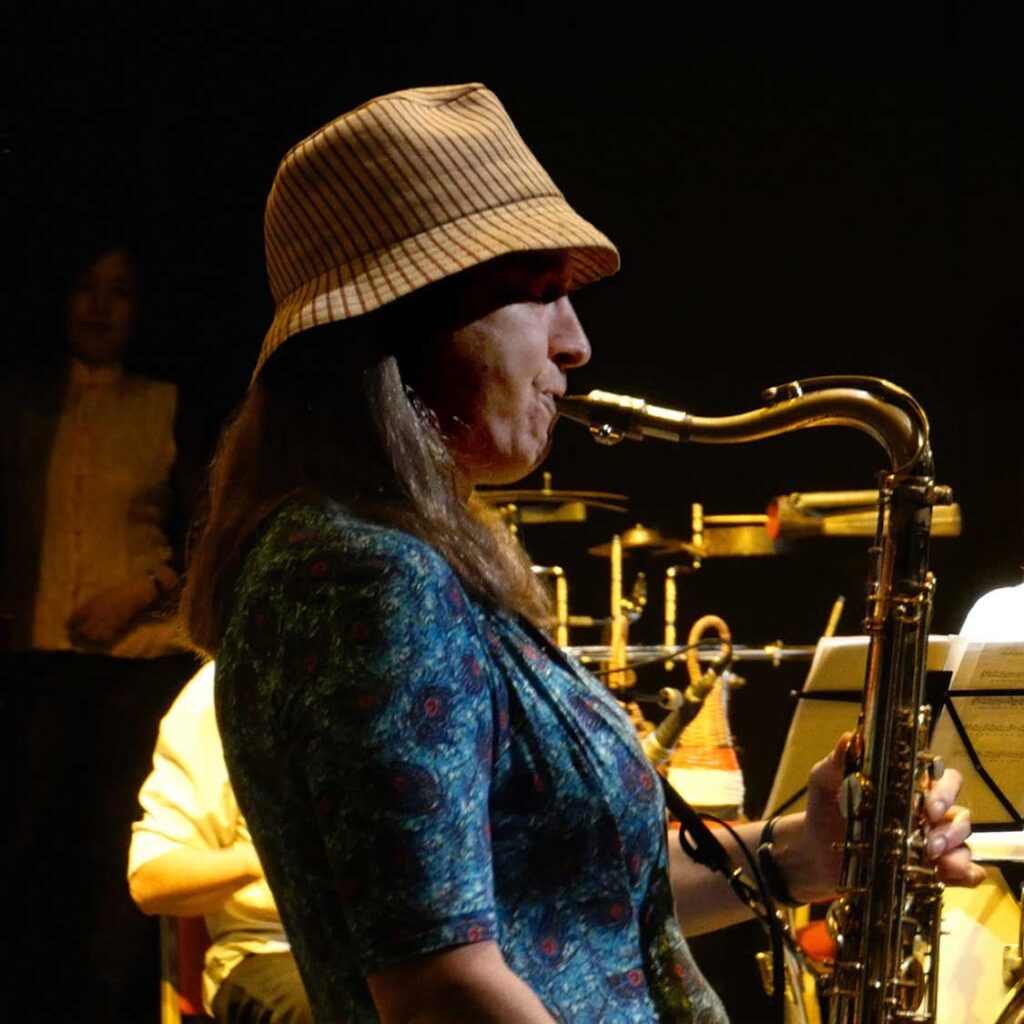
What else currently occupies your life?
Time and times.
Klemen Breznikar
Headline photo: Gee Vaucher
Penny Rimbaud Official Website / Facebook / Instagram / X / Bandcamp
One Little Independent Records Official Website / Facebook / Instagram / X / Bandcamp / YouTube

